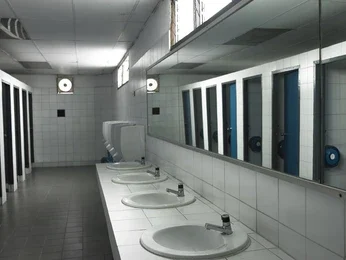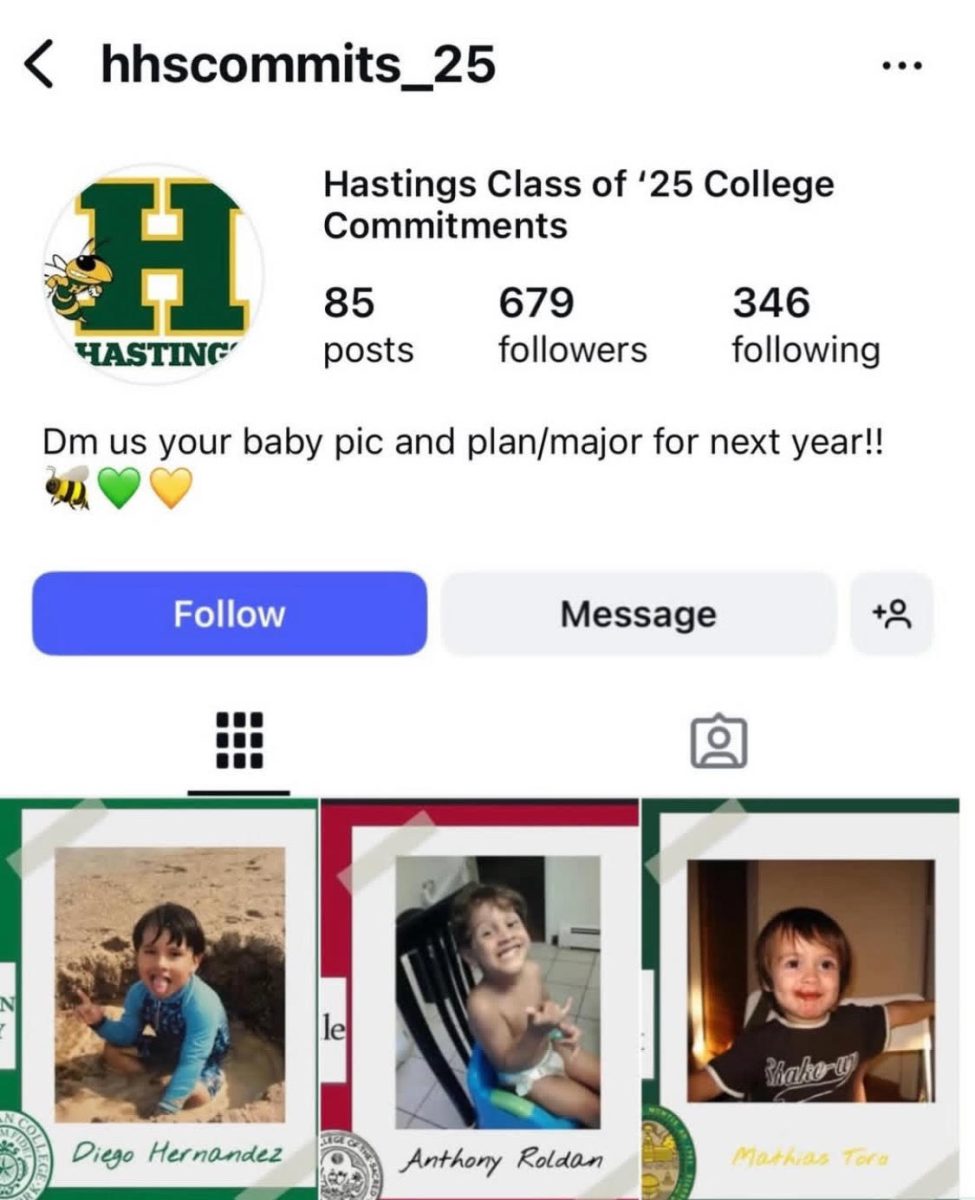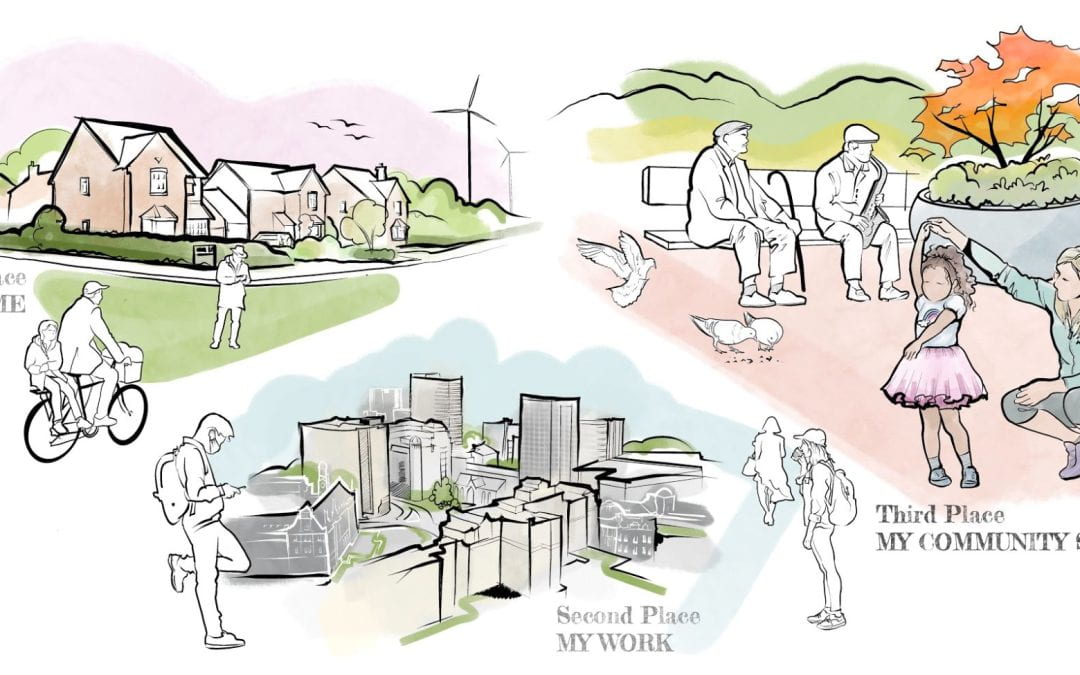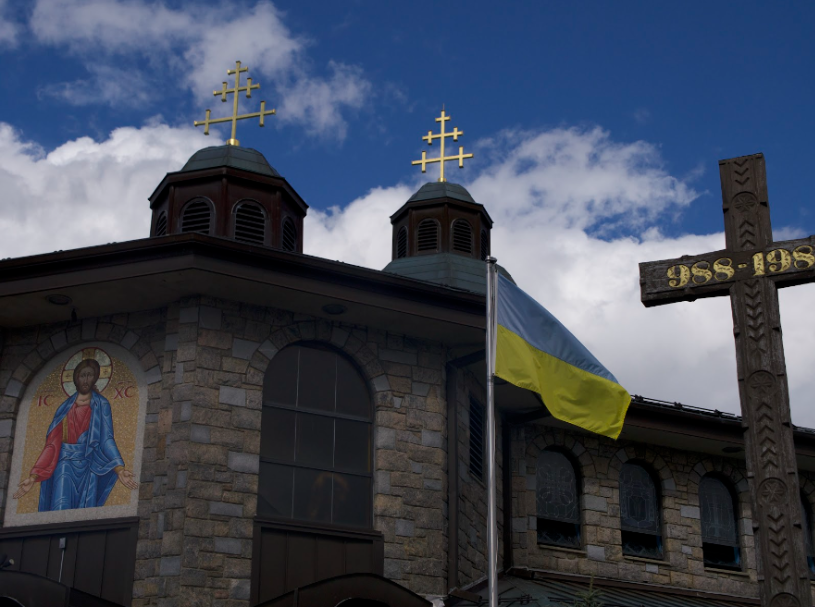“We Cry Just at Home:” Local Ukrainians Reflect on the Russian Invasion of Ukraine.
April 28, 2022
Photographs by Maximilian Dodziuk.
Father Kiril Angelov, the priest at the St. Michael’s Ukrainian Catholic Church on Shonnard Place in Yonkers, searched four languages trying to find a word to describe the pain of the Russian invasion of Ukraine. “It is so hard. It is heartbreaking. I even searched the classical Greek dictionaries and my Hebrew dictionary, but I cannot find the proper word [to describe it.]”
Speaking to me about the war, he issued a call for empathy in his solemn, accented English:“Think about those people who are from there, with families there, and with family members in the army… ask yourself: how would you feel?”
Svitlana Khmyrkovska, the principal of the regional Ukrainian school, watches the war grind on through her personal connection to Ukraine: “I was born in Ukraine. I was educated there. I went to university there. I got my first job there. I got married there. I had my son there. My parents and cousins and friends still live there. Looking at them now, it looks as though they had lived five years in one month. They go gray, they are always crying and worried, they’re not sleeping or eating enough, and it is very difficult.”
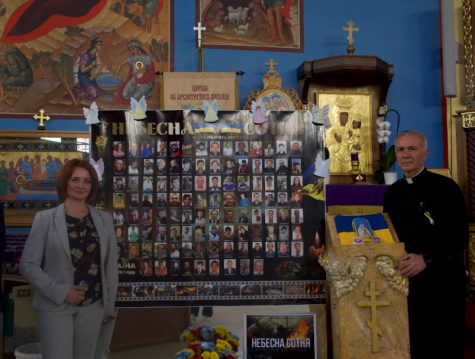
The Ukrainian-American community in Yonkers and Hastings has lived here for generations, celebrating their own culture, often out of the public gaze, until disaster struck their homeland on February 24th, 2022.
Hastings has long been a village of immigrants; in 1930, two thirds of the residents in Hastings were foreign born, according to the Hastings Historical Society. Of that population, a third hailed from Eastern Europe. Washington Avenue used to have grocery stores serving customers in Ukrainian and Polish, and a thriving community formed around St. Michael’s Ukrainian Catholic Church.
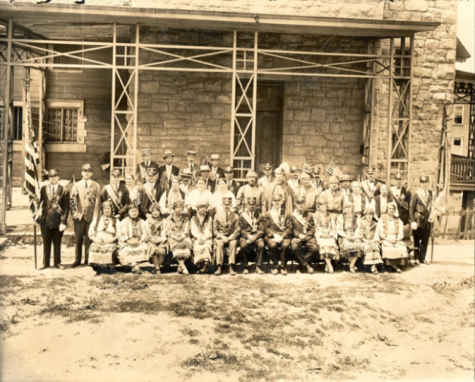
Ms. Khmyrkovska noted that the Ukrainian community has found a place here, especially since the Second World War. “[America] is such a great country to let our culture thrive here.” She and the other Ukrainian language and culture instructors teach students for four hours every Saturday. The students, she said, are impressive. “We teach our students here [in Westchester] about the war with Russia that happened 100 years ago, the Holodomor genocide in 1932 and 1933, and the parallels with the events today.”
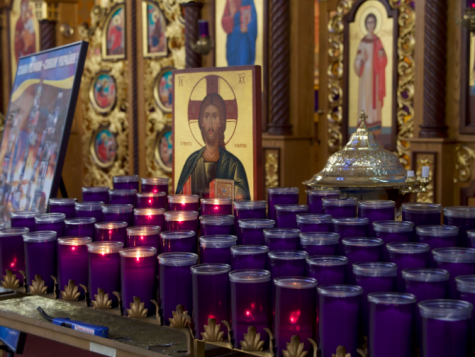
It is hard for Ukrainians like Father Angelov to continue living life normally as Ukraine suffers. “The Italians in the Bronx have a saying. They have a feeling called agita, meaning acid. Watching every day, every hour, things that are happening there, we have agita.”
The agony of the war crosses borders and oceans, touching every Ukrainian here. “We cry just at home, when nobody’s there, and we try to smile and look strong outside,” said Ms. Khmyrkovska. “We pray every single minute that we will win, just because we have to destroy this terrible system.”
Father Angelov and Ms. Khmyrkovska spoke often about the Russian “system.” To them, the Russian government has inflicted horrors on the innocent for decades, regardless of whether the Bolsheviks, the Stalinists, or the oligarchs were in charge. “The bombs today are coming from the same political system [as in the war in Ukraine a century ago],” said Ms. Khmyrkovska.
For Father Angelov and Ms. Khmyrkovska, what unites the Russian governments of today with those from the last century is not ideology, but a willingness to inflict callous suffering. Father Angelov addressed Hastings students in an appeal for understanding: “The students must understand the Russian political system has existed like this for a hundred years, with Lenin and Stalin. They keep this same system. They want to eliminate everyone against their thinking and their regime. If the young people in the United States understand this reality, hopefully for the years to come they will understand these regimes and take them seriously.”
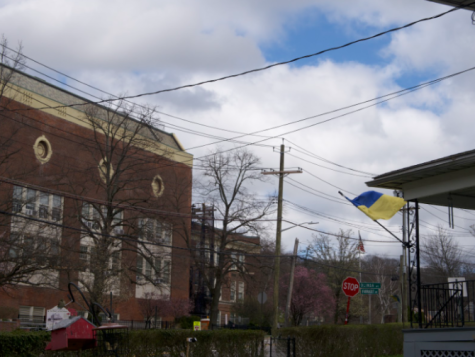
Ms. Khmyrkovska wants Americans, especially students, to understand a little bit more about the distinct Ukrainian culture that Vladimir Putin is trying to absorb and erase. “My son went to school and said that he was from Ukraine, and other students asked him, ‘Is that Polish? Is that Russian?’ Ukraine was not familiar enough to Americans, since it was part of the Soviet Union for 70 years. But before the USSR, it had been independent for centuries.”
Ms. Khmyrkovska thinks a little instruction about Ukrainian culture in high schools could do a lot of good. “Maybe in high school, students could learn about Ukraine, even for just an hour or two.”
The irony of Putin’s claim that Ukrainian culture is really a subsection of Russian identity is that Ukrainian society predates Russian society. Father Angelov explained, “Kiev was a Christian city in 988 AD, and at that time, Moscow did not even exist. Their culture came three centuries later. Putin and the Russian government, I think, are jealous. They want our history to be Russian history. When Ukraine celebrated a millennium of Christianity in 1988, Russia celebrated too, even though Russia did not exist at that time. Putin wants to eliminate everything Ukrainian, but it is impossible.”
To confront the horror of the conflict, Ms. Khmyrkovska and Father Angelov have two solutions: kindness and prayer, which they say are better than arms. The Ukrainian community here has been scrambling to collect as many donations to send overseas as possible. “We collect military and medical supplies to send it. Communities, families, police departments and schools come to help us,” said Ms. Khmyrkovska. “We are so grateful that so many countries are supporting us, especially the USA.” But still, she lamented, “it is still not enough.”
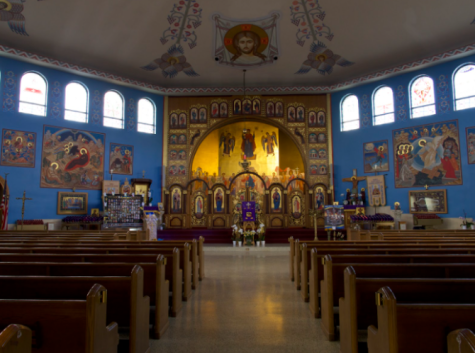
Father Angelov reflects on the path forward: “To live like this on a daily basis is horrible, but we have to be strong and we have to pray. The only solution is prayer.” Ms. Khmyrkovska added, “Every day here in our community we pray in the church, and every morning we pray at home.”
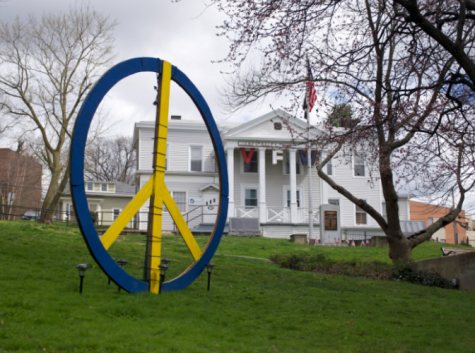
Father Angelov urged Americans to watch the war, to pay attention, and to remember what happens now: “Of everything happening now, only one good thing can come out of it: the truth. The world can see the truth about the Russian system.”
